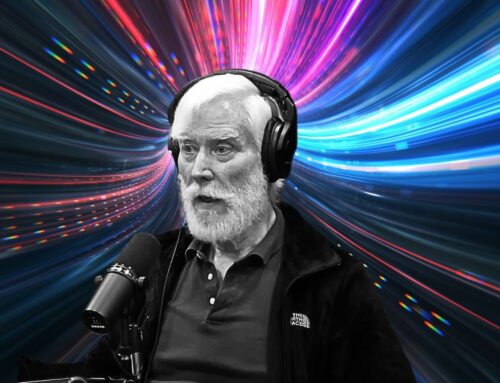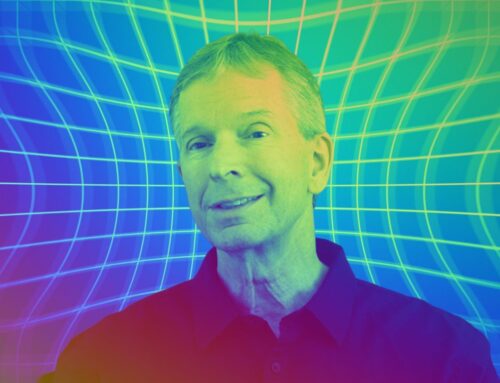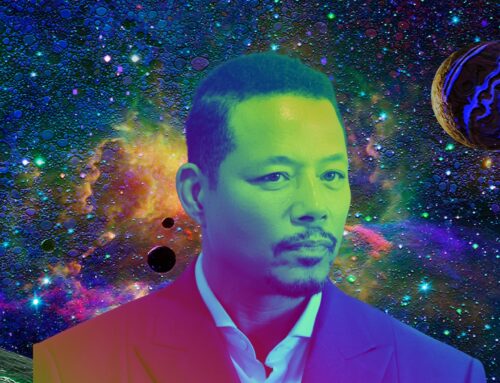If you’re reading this article, you may have watched episodes #2160 or #2252 of the Joe Rogan Experience. Episode #2160 features Billy Carson, an author, entrepreneur, and expert in ancient civilizations, consciousness, and metaphysics. Episode #2252 features Wesley Huff, a scholar specializing in biblical and ancient languages, who challenges Carson’s interpretations. You can find this updated section below.
As the founder of 4biddenknowledge Inc., Carson has dedicated his career to uncovering and interpreting ancient texts, with a particular focus on the Emerald Tablets and the theories surrounding ancient astronaut hypotheses.
In this article, we’ll break down some of Carson’s key ideas to make them accessible and engaging for a general audience. If you like these breakdowns and topics, you might also enjoy my article about Terrence Howard.
The Emerald Tablets
Ancient Wisdom
Carson’s work on the Emerald Tablets is perhaps his most well-known contribution. The Emerald Tablets are a series of ancient texts attributed to Thoth, an ancient Egyptian deity associated with wisdom and writing. Carson believes these tablets hold profound wisdom about the nature of reality, the universe, and human consciousness.
Background: The Emerald Tablets are often considered esoteric texts that provide insights into alchemy, cosmology, and the spiritual development of humanity. Carson interprets these writings as not just historical artifacts but as guides to understanding higher dimensions and the nature of existence.
Key Messages
According to Carson, the Emerald Tablets convey messages about the interconnectedness of all things, the eternal nature of the soul, and the potential for human beings to ascend to higher states of consciousness. He suggests that by studying these texts, individuals can unlock hidden knowledge that has the power to transform their lives and elevate their spiritual awareness.
Practical Advice: Carson encourages readers to engage with the Emerald Tablets through meditation and reflection. He believes that the teachings within these texts can help individuals understand their true nature and their place within the cosmos.
Ancient Astronaut Theory
Extraterrestrial Influences
One of Carson’s prominent theories is the ancient astronaut hypothesis, which posits that extraterrestrial beings have visited Earth in the distant past and have had a significant influence on human civilization. He suggests that many ancient structures, myths, and texts contain evidence of these extraterrestrial encounters.
Background: The ancient astronaut theory is not new; it has been popularized by various researchers and authors over the years. Carson contributes to this field by providing interpretations of ancient texts and archaeological findings that he believes support the theory of extraterrestrial involvement in human history.
Evidence and Interpretation
Carson points to various ancient monuments, such as the pyramids of Egypt and the megalithic structures of South America, as potential evidence of advanced knowledge and technology that could have been imparted by extraterrestrial visitors. He also interprets certain mythological stories and religious texts as accounts of these ancient encounters.
Practical Advice: Carson encourages open-mindedness and critical thinking when exploring these theories. He believes that by questioning mainstream historical narratives and considering alternative explanations, individuals can gain a deeper understanding of humanity’s origins and potential future.
Consciousness and Spirituality
The Nature of Consciousness
Carson places a strong emphasis on the study of consciousness and its connection to ancient wisdom. He argues that understanding consciousness is key to unlocking human potential and achieving personal and collective transformation. According to Carson, ancient texts like the Emerald Tablets offer valuable insights into the nature of consciousness and the universe.
Background: Carson’s views on consciousness are influenced by both ancient spiritual teachings and modern scientific research. He believes that consciousness is not confined to the brain but is a fundamental aspect of the universe that can be explored and expanded.
Practical Applications
Carson advocates for practices such as meditation, mindfulness, and the study of ancient texts to deepen one’s understanding of consciousness. He suggests that these practices can lead to higher states of awareness, greater creativity, and a more profound sense of connection to the universe.
Practical Advice: Carson encourages individuals to integrate spiritual practices into their daily lives. By doing so, he believes that people can tap into their inner wisdom, enhance their intuitive abilities, and achieve a more harmonious and fulfilling existence.
Financial Literacy and Empowerment
Bridging Ancient Wisdom and Modern Success
In addition to his work on ancient wisdom and consciousness, Carson also focuses on financial literacy and empowerment. He believes that understanding and applying the principles of financial success are crucial for achieving overall well-being and freedom.
Background: Carson’s book “Woke Doesn’t Mean Broke” combines ancient wisdom with modern financial strategies. He emphasizes the importance of financial education and encourages individuals to take control of their financial futures through informed decision-making and strategic planning.
Key Strategies
Carson outlines practical steps for achieving financial success, such as investing wisely, managing debt, and creating multiple streams of income. He believes that by combining spiritual awareness with financial literacy, individuals can achieve both material success and spiritual fulfillment.
Practical Advice: Carson advises readers to educate themselves about financial management and to develop a mindset of abundance. He emphasizes the importance of continuous learning and self-improvement in both financial and spiritual realms.
Challenges to Billy Carson’s Claims
Recent discussions have raised questions about the validity of some of Billy Carson’s claims, particularly in relation to his interpretations of ancient texts. Wesley Huff, a scholar specializing in biblical and ancient languages, shared several points of contention during his appearance on the Joe Rogan podcast episode #2522:
- Surface-Level Knowledge: Huff argued that Carson’s understanding of ancient languages and texts is superficial. He pointed out inaccuracies in Carson’s discussions of ancient Near Eastern languages, including Hebrew, Greek, and Sumerian, which Huff claimed indicated a lack of formal training or deep expertise.
- Misrepresentation of Texts: Huff emphasized that many of Carson’s interpretations of ancient religious and mythological texts are inconsistent with scholarly research. He questioned the methodology Carson uses to draw conclusions, particularly about topics like the Emerald Tablets and ancient astronaut theories.
- Criticism of Debate Dynamics: Huff described a public exchange with Carson, revealing that Carson had been informed in advance about the nature of the discussion but later claimed otherwise. Huff noted that Carson’s responses during their conversation demonstrated gaps in understanding and preparedness.
- Legal Backlash: Following their exchange, Huff noted that Carson issued cease-and-desist letters to prevent the release of their conversation, a move Huff found counterproductive. He argued that the attempt to suppress the discussion inadvertently amplified its reach, illustrating the “Streisand Effect.”
- Exaggerated Claims: Huff expressed skepticism about Carson’s assertion that he could interpret Sumerian texts, a skill that even experienced linguists find extraordinarily challenging. Huff highlighted the distinction between entertainment and scholarly rigor, suggesting that Carson’s work often falls into the former category.
- Importance of Methodology: Huff stressed the need for clear criteria when evaluating historical claims. He underscored the complexity of historiography and linguistic analysis, areas where he felt Carson’s approach lacked depth and consistency.
Here is the full interview for your viewing pleasure.
Balancing Perspectives
While Billy Carson’s work captivates audiences with its blend of ancient wisdom and modern metaphysics, these critiques invite readers to consider the distinction between entertainment and academic rigor. For those interested in exploring ancient texts and theories, a multidisciplinary approach grounded in verified research may offer a more reliable path to understanding.
Here is the full conversation between Wesley Huff and Billy Carson.
Here are the key points of contention between the two:
- Misinterpretation of Texts:
- Huff criticized Carson’s reliance on sources like the Sinai Bible, the Gospel of Barnabas, and the Gospel of Jesus’s Wife, which Huff described as either mischaracterized or outright forgeries.
- Huff pointed out that the Sinai Bible, formally known as Codex Sinaiticus, does not deny the crucifixion of Jesus as Carson suggested. Huff argued that its content aligns closely with modern biblical texts.
- Lack of Verifiable Methodology:
- Huff challenged Carson’s approach to historical analysis, emphasizing the need for rigorous methodologies to verify the authenticity of ancient sources. He noted that many of Carson’s claims, such as those about the Gospel of Barnabas, lacked credible historical grounding.
- Reliance on Disputed Documents:
- Huff highlighted issues with the Gospel of Jesus’s Wife, which was proven to be a modern forgery. The text contained elements copied from a PDF version of the Gospel of Thomas, undermining its credibility.
- Debates on Oral Histories:
- Carson emphasized the significance of oral histories from indigenous cultures, such as the Dogon tribe of Mali, to support his theories about extraterrestrial influence. Huff countered by questioning the methodologies used to validate oral traditions as historical evidence.
- Criticism of Source Analysis:
- Huff underscored the importance of engaging with primary sources in their original languages. He expressed concerns that Carson’s interpretations often bypass rigorous scholarly standards, leading to conclusions that are inconsistent with established research.
- Biblical Parallels and Interpretations
- The discussion included debates over parallels between ancient texts like the Enuma Elish and the Bible. While Carson argued that elements of Genesis were directly copied from earlier sources, Huff contended that such similarities were superficial and lacked deeper thematic alignment.
- Broader Implications:
- Huff’s critiques extended to Carson’s overarching narratives about ancient astronauts and advanced civilizations, urging for a more evidence-based approach to these claims.
Conclusion
Billy Carson’s theories offer a captivating mix of ancient wisdom, metaphysical exploration, and practical advice. His work on the Emerald Tablets, ancient astronaut hypotheses, and consciousness invites individuals to broaden their perspectives and question traditional narratives. Additionally, his emphasis on financial literacy and empowerment adds a modern, actionable layer to his holistic approach to well-being.
However, recent critiques from scholars like Wesley Huff highlight the importance of approaching Carson’s interpretations with discernment. While Carson’s ideas inspire curiosity and exploration, a critical evaluation of their scholarly foundation can provide a more balanced understanding. For those drawn to Carson’s work, combining open-mindedness with a commitment to evidence-based research offers a meaningful way to engage with his teachings while navigating the complexities of ancient wisdom and modern interpretations.
✨ Start With Values
Receive $400 of bonus resources with any order of my new book,Start With Values (Penguin Random House).
Written by : Brad Hook
Brad Hook is a writer, podcaster, speaker and entrepreneur. He helps individuals and teams achieve sustainable high performance through inspiring workshops and a powerful suite of digital tools. Discover his new book, Start With Values (Penguin Random House), — available now!
Stay connected with Brad
BE NOTIFIED ABOUT EVENTS and receive the latest tools and tips first
We will never share your email with others.







